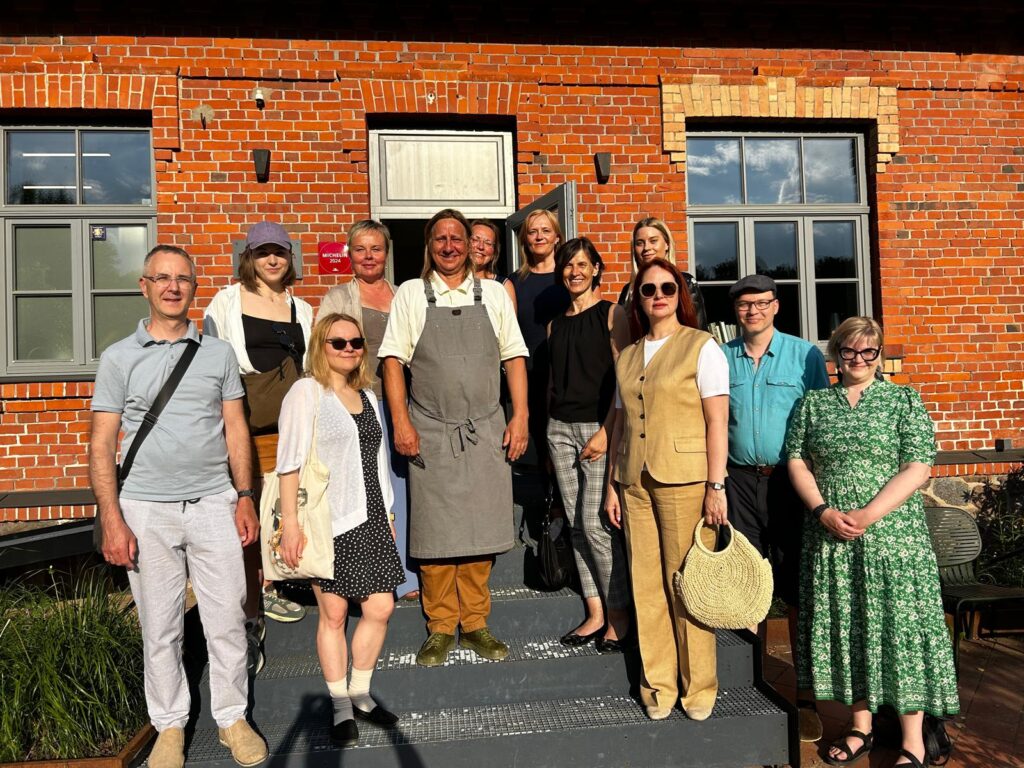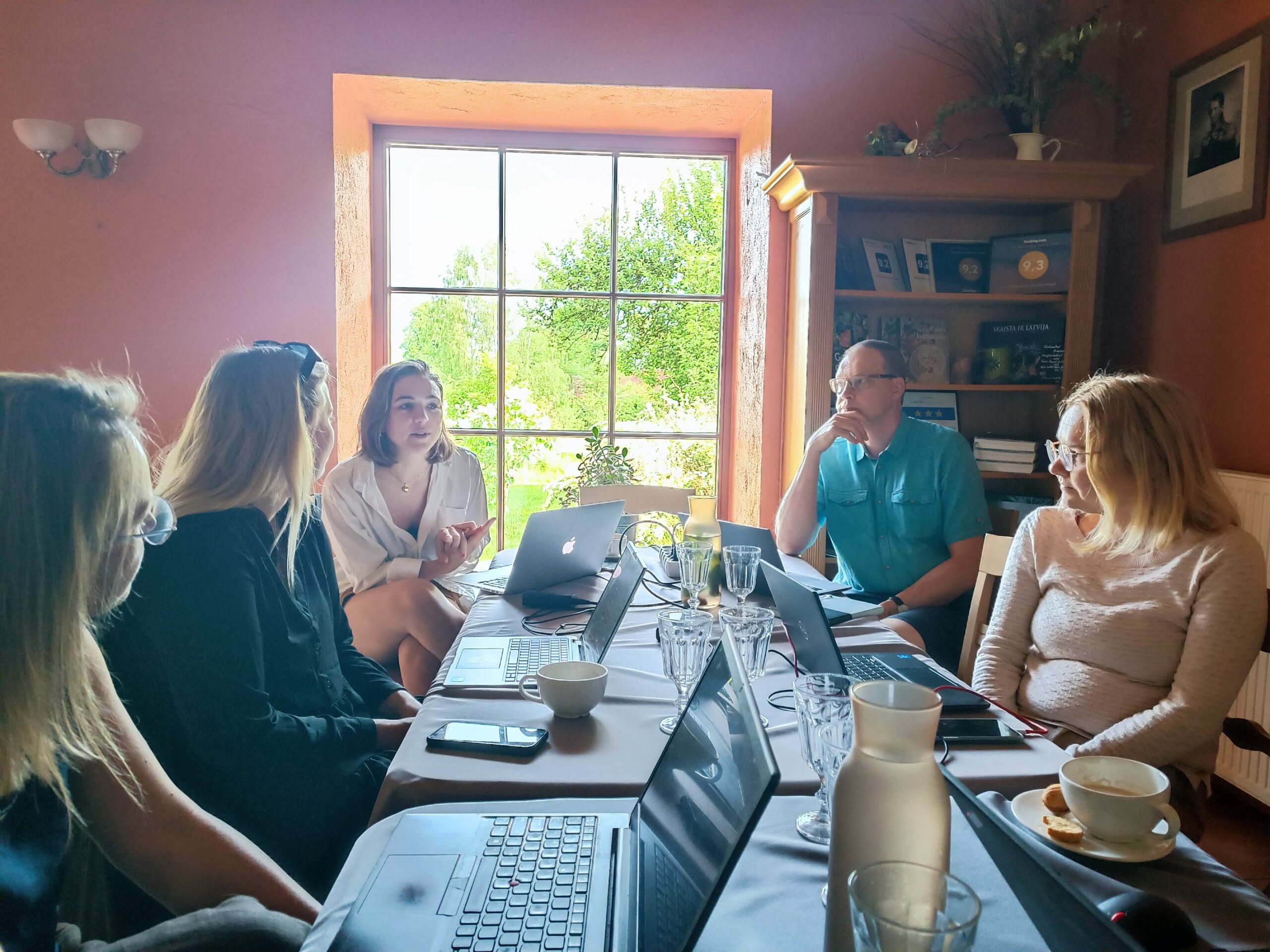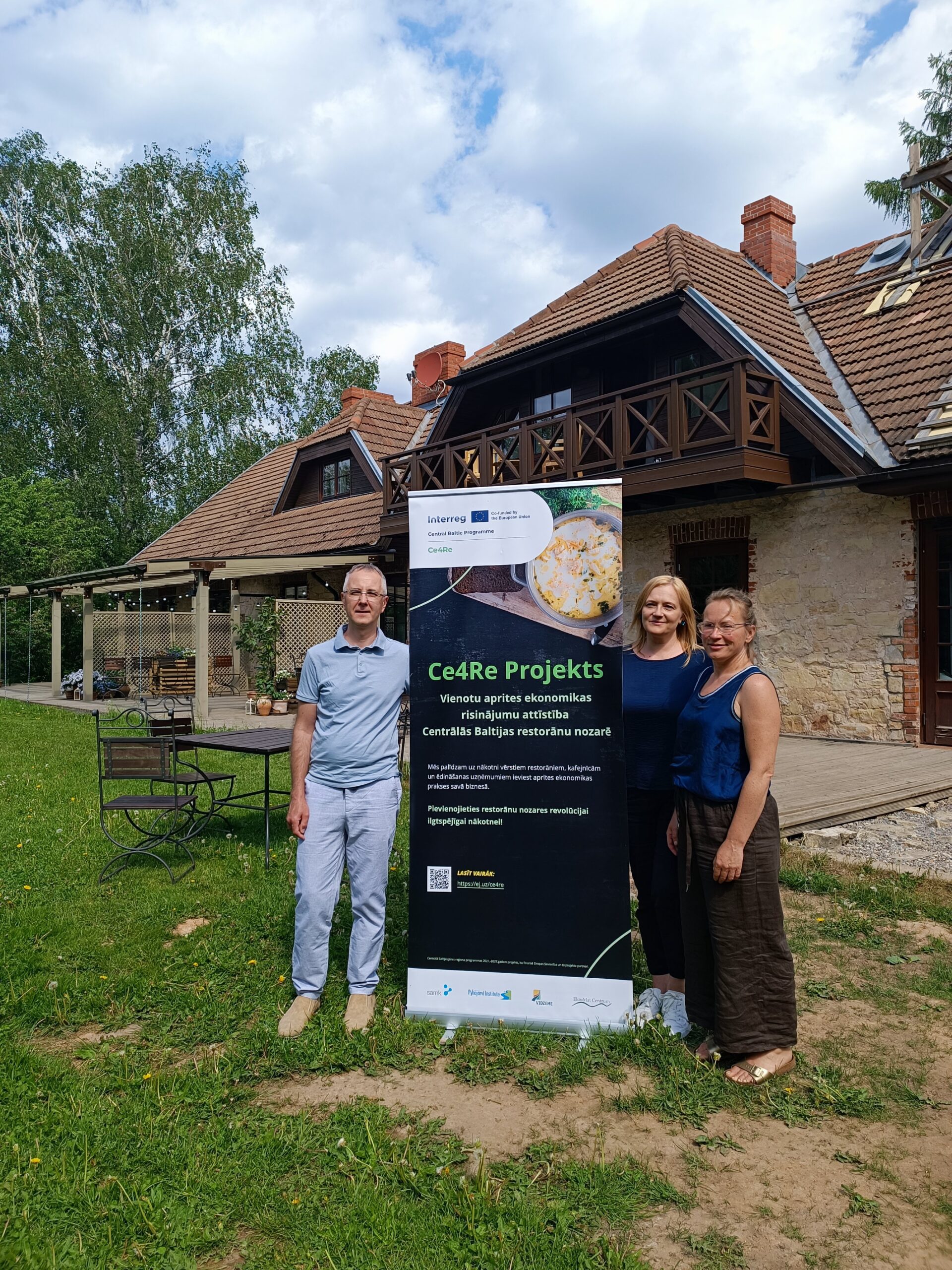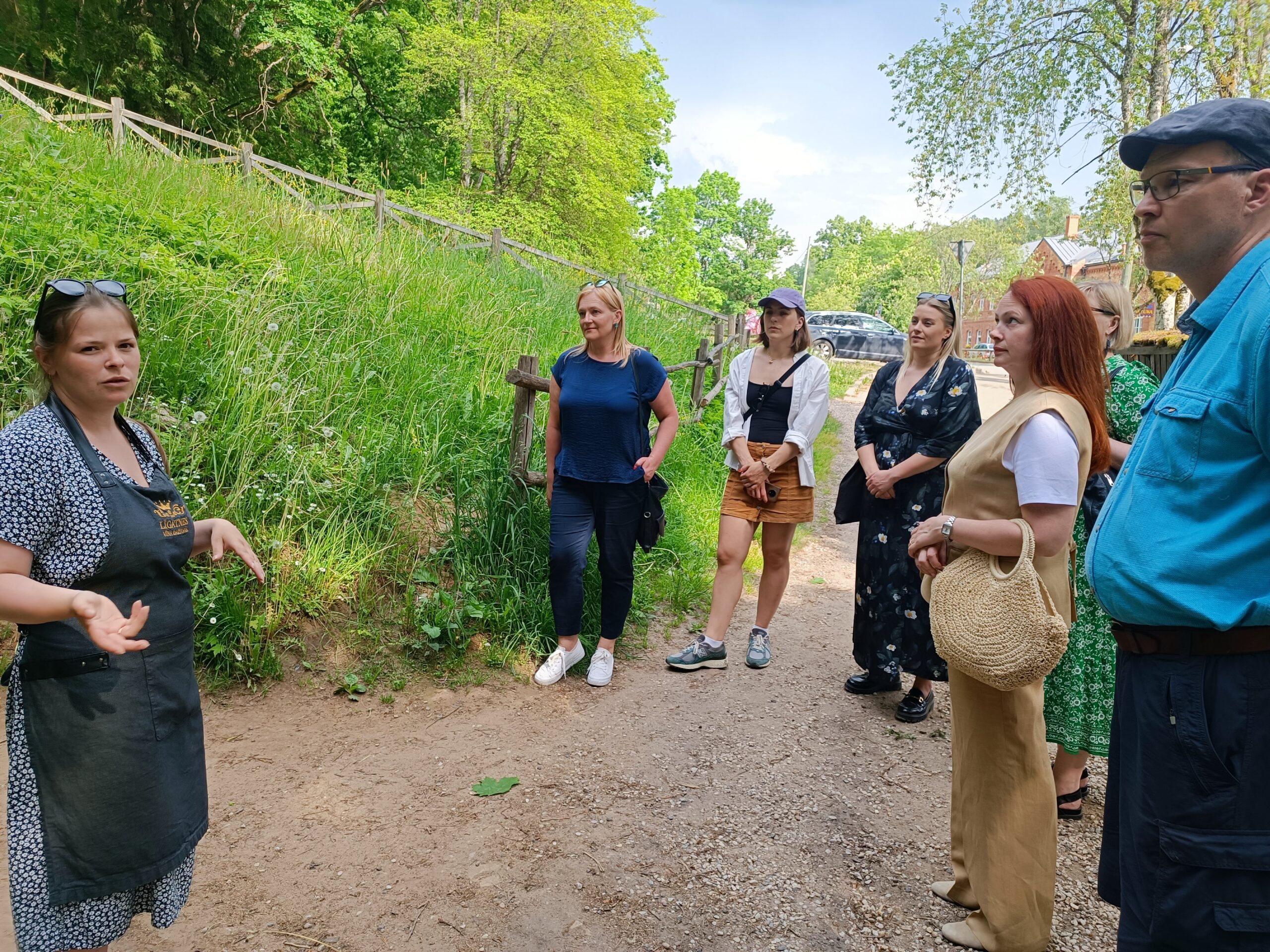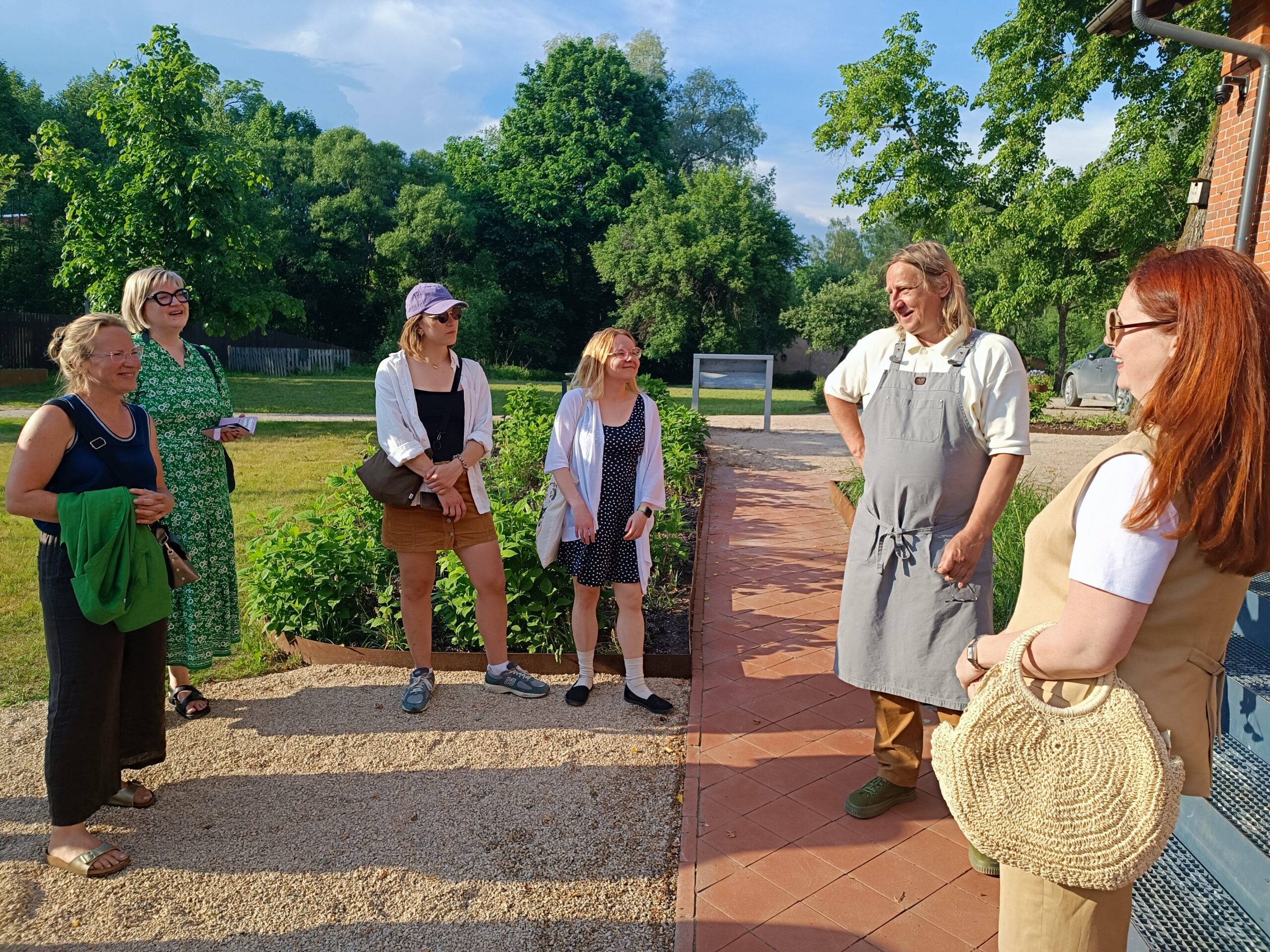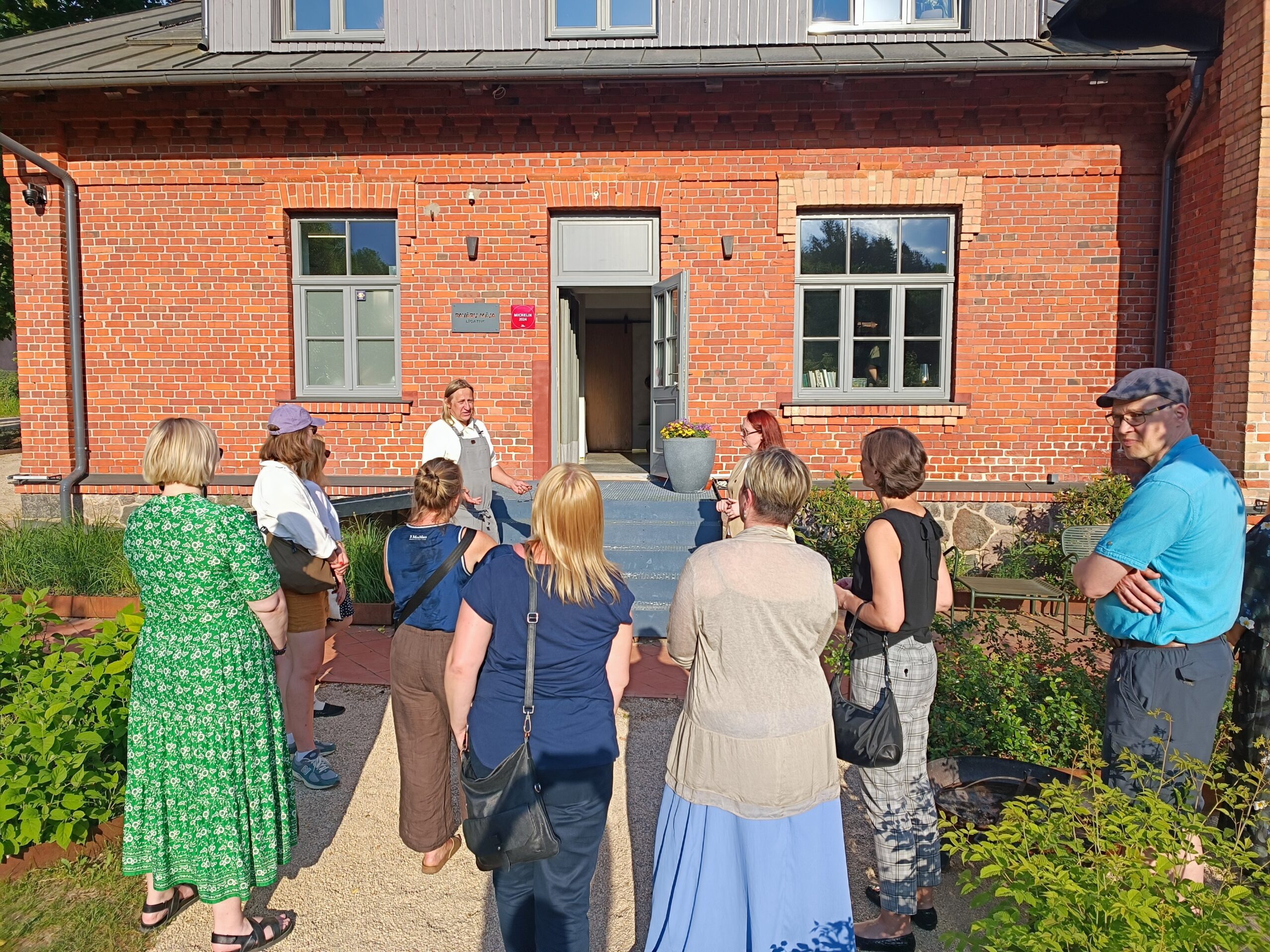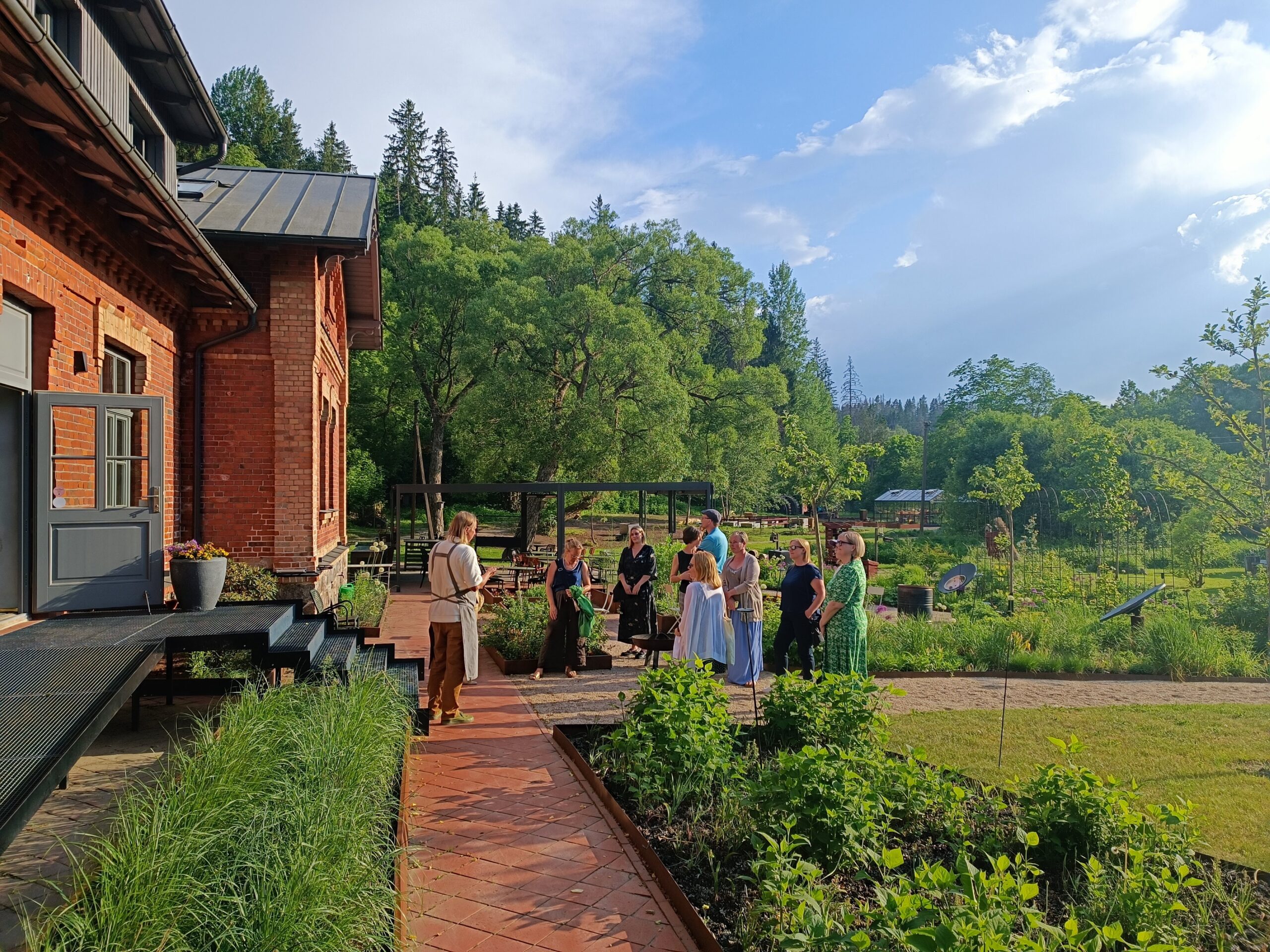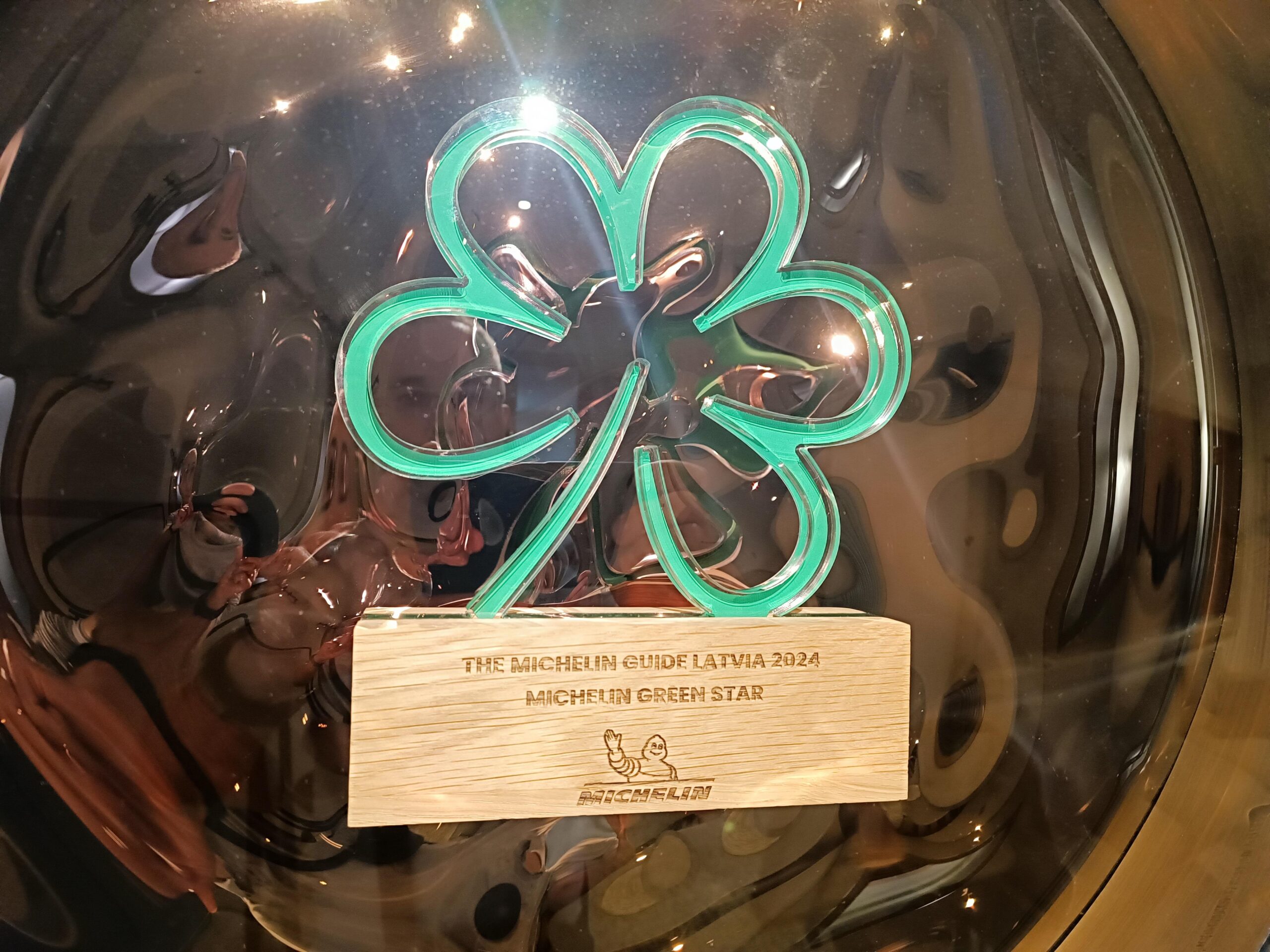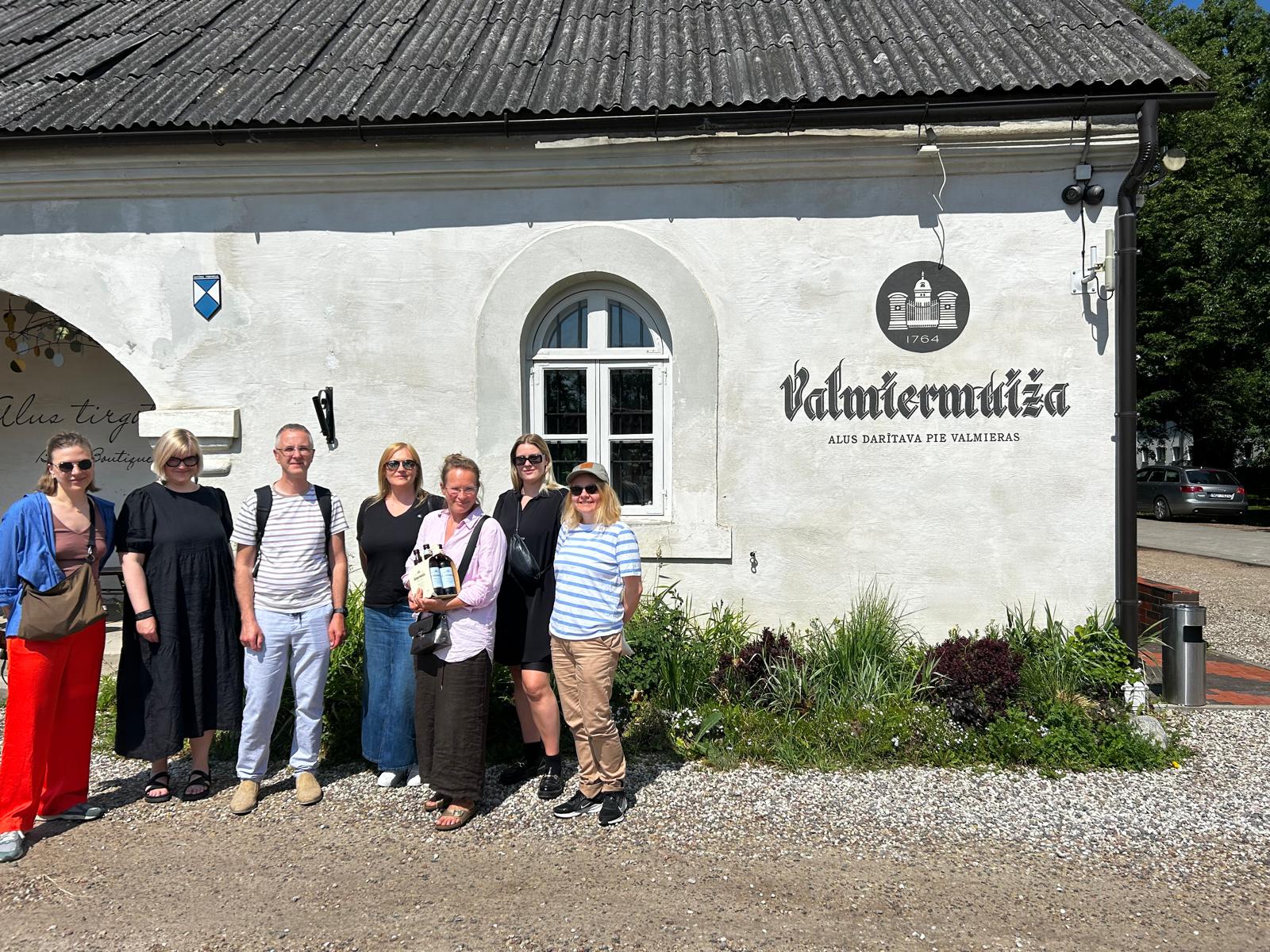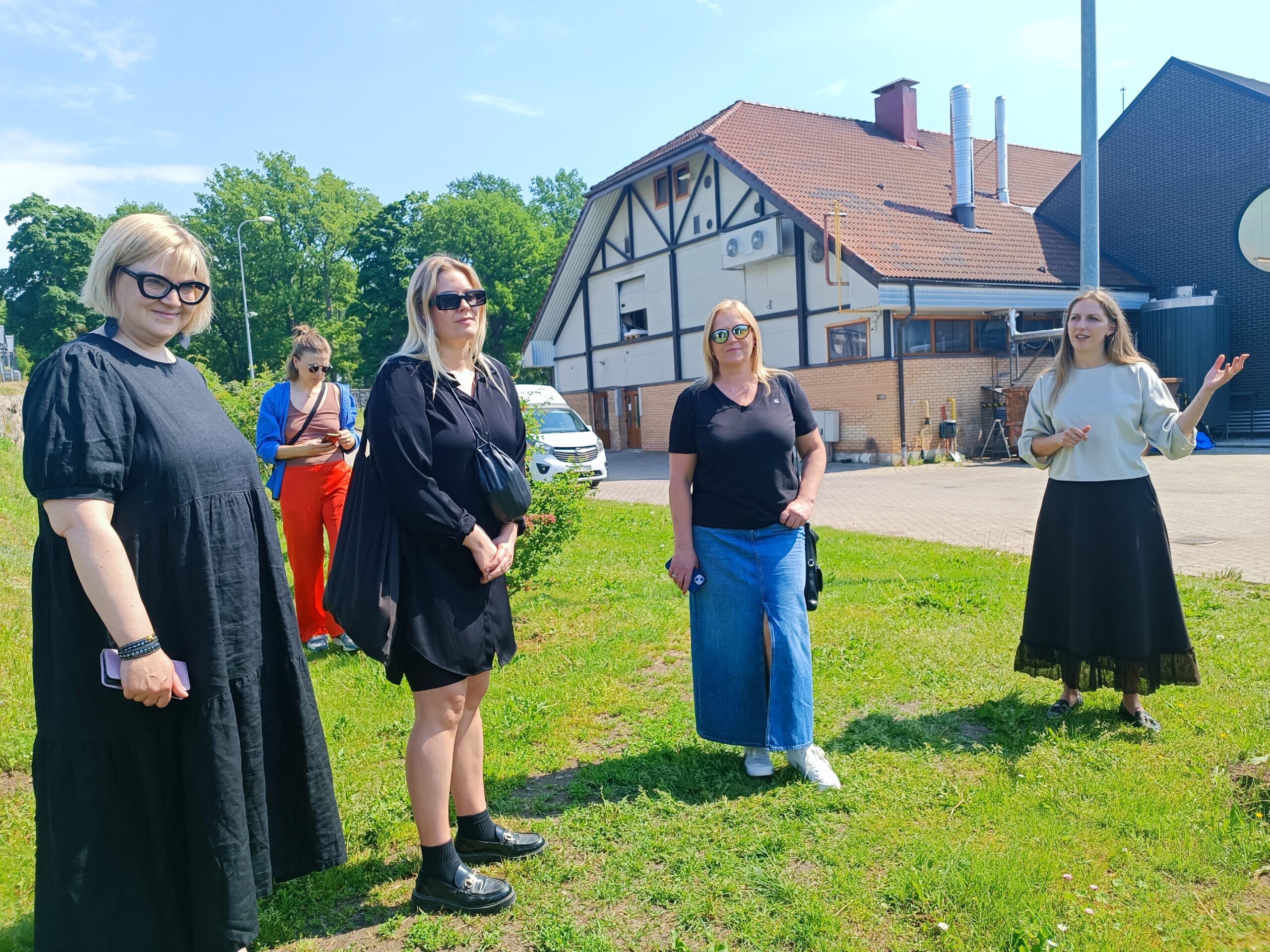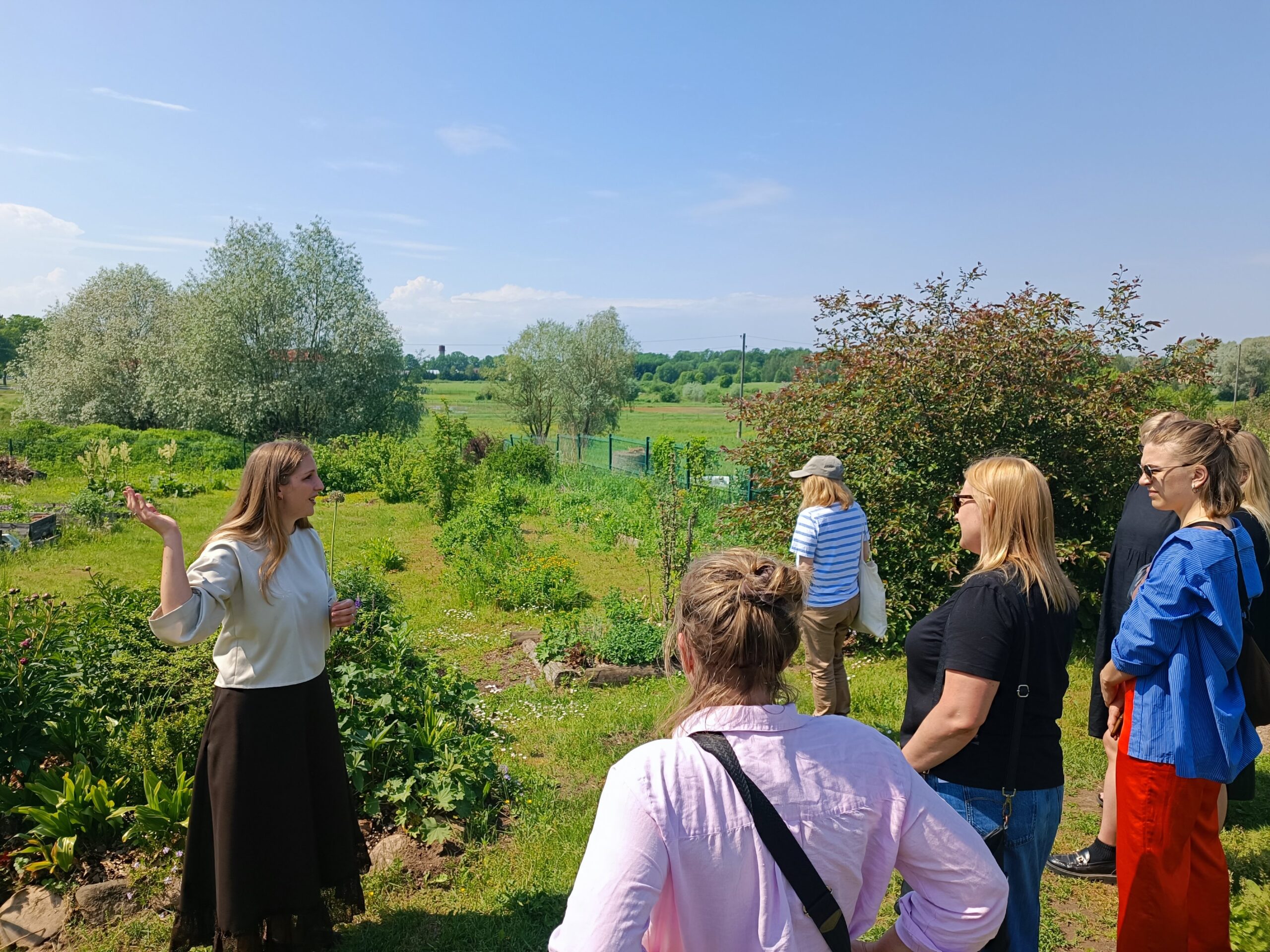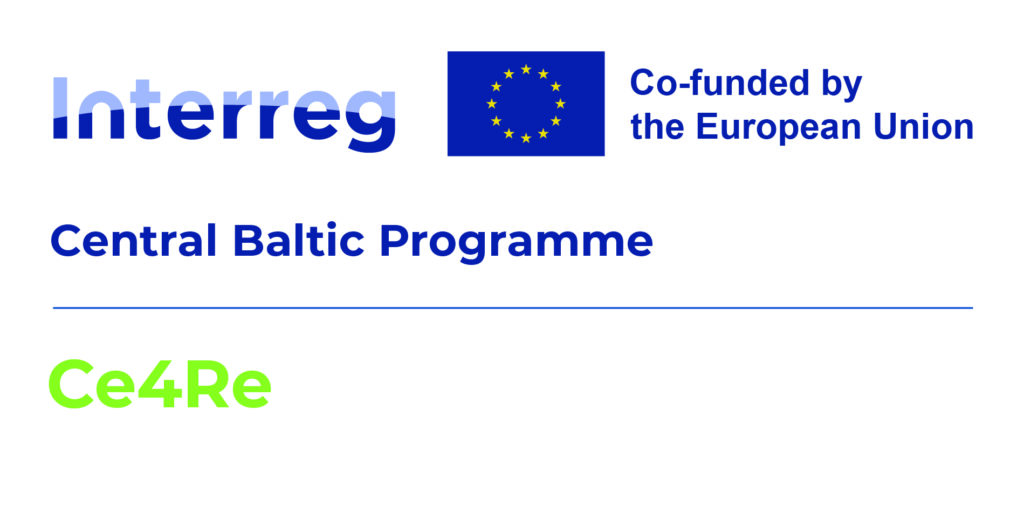On May 28 and 29, partners of the “Ce4Re” project from Finland and Sweden visited the Cēsis and Valmiera areas.
The project “Ce4Re: Circular Economy Solutions in the Restaurant Sector” focuses on introducing circular economy principles in the restaurant industry in the Central Baltic region. Its goal is to promote thoughtful resource consumption and waste reduction by developing unified solutions covering food procurement, preparation, and serving stages. The project partners are Satakunta University of Applied Sciences (Finland), the Organic Food Centre (Sweden), the Pyhäjärvi Institute (Finland), and the Vidzeme Planning Region (Latvia).
According to the strategic goals of the Vidzeme Planning Region in the field of environment and efficient resource use, the need to promote circular economy implementation in businesses has been emphasized in the region’s Development Programme 2021–2027, helping to reduce waste generation and promote resource conservation. The “Ce4Re” project solutions—such as the circular menu tool, waste reduction tool, and the “EkoGo” marketing app for sustainable food producers and food service businesses—align with the region’s strategic goal of helping restaurants transition to a circular economy model. The solutions developed in the project will encourage the use of local and seasonal food products, reduce food waste, and raise consumer awareness of the circular economy.
The fourth in-person partner meeting was highly significant for the progress of the “Ce4Re” project, offering an opportunity to discuss progress, challenges, and future actions. The first three meetings took place in Finland and Sweden, where the situation is relatively similar, as sustainability issues have long been a focus in the Nordic countries, including in the restaurant sector. In contrast, the visit to Vidzeme allowed partners not only to assess the work done so far but also to gain a deeper understanding of the Latvian restaurant environment and local traditions, which will help better adapt the solutions created in the project.
The visit included two intensive days of meetings. The project plan for the coming months, restaurant engagement progress, and the content and technological concept of the developed tools—the circular menu and waste reduction tools—were discussed. It should be noted that a public procurement for the development of the waste reduction tool is planned to be announced this summer, with the development phase involving five food service businesses from each project country. The partners also agreed to compile a collection of best practices to inspire other restaurants. To expand the knowledge of restaurant representatives on the circular economy, it was decided to continue the educational online seminar series in the fall of 2024.
With great interest, partners from Finland and Sweden visited the Līgatne Winery and the restaurant “Pavāru māja Līgatnē,” which last year received the “Michelin” Green Star for its excellent cuisine and sustainable management. The restaurant’s owner, Ēriks Dreibants, introduced guests to the restaurant’s concept, not only offering dishes and drinks made from local, seasonal, and naturally grown products but also explaining how his business is involved in the local community by creating a publicly accessible garden and even offering local residents the opportunity to grow their vegetables there and store their harvest in the restaurant’s cellar.
In Līgatne, the project meeting was joined by Svetlana Riškova, president of the Latvian Chefs’ Club, who is involved in the project management group. She introduced the guests to the current situation in Latvia’s restaurant sector and expressed her readiness to share her extensive knowledge and experience in the planned online training for restaurant representatives this fall. Ms. Riškova’s perspective on introducing circular economy principles in food service businesses is highly valuable.
On the second day of the visit, the partners visited the Valmiermuiža Beer Kitchen restaurant to learn about a successful example of implementing circular economy principles, closely collaborating with farmers and adapting the menu to the seasonal product supply. This is an excellent best practice example that also inspires other restaurants to transition to a more sustainable operating model by maximizing the use of local resources and reducing waste.
The project partners also met with Santa Rumba, the owner of the “Mežvijas” organic farm in Valmiera, to learn more about Latvia’s only REKO farmers’ online market, which takes place weekly in Valmiera. Santa is one of the organizers of this market. It is noteworthy that REKO originated in the Nordic countries, where it is a popular model for selling farmers’ products. The concept is based on the sale of local products without intermediaries, using the “Facebook” platform. Therefore, it was interesting for project partners from Finland and Sweden to learn how the REKO movement has settled and developed in Latvia.
“Ce4Re” is a project of the Central Baltic Program 2021–2027, co-funded by the European Union and its project partners. However, the views and opinions expressed are solely those of the author(s) and do not necessarily reflect the views of the European Union or the European Commission, which bear no responsibility for them.
For more information about the “Ce4Re” project, visit the website: https://centralbaltic.eu/project/ce4re/.

